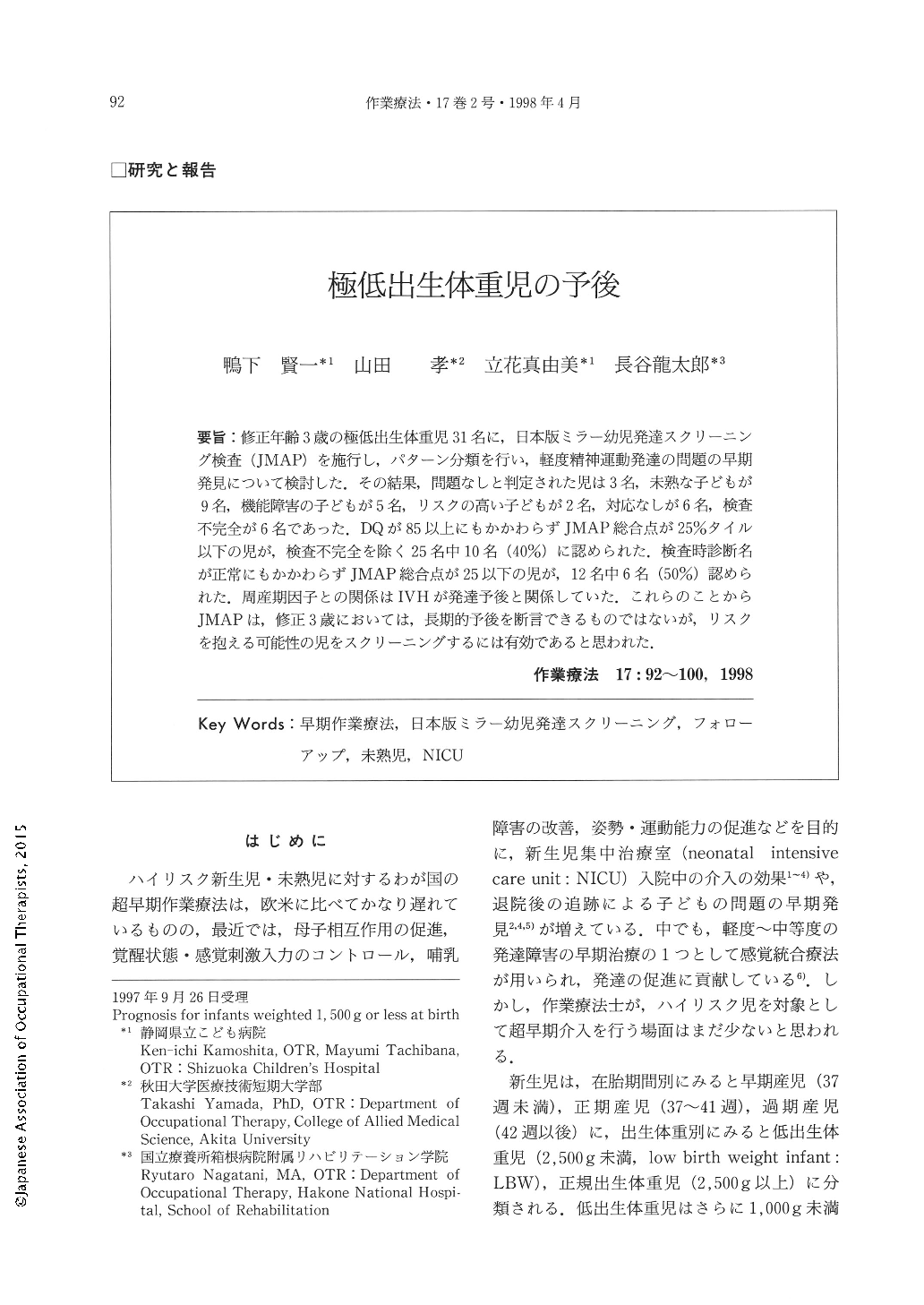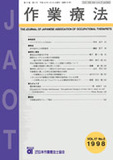Japanese
English
- 販売していません
- Abstract 文献概要
- 1ページ目 Look Inside
- 参考文献 Reference
- サイト内被引用 Cited by
要旨:修正年齢3歳の極低出生体重児31名に,日本版ミラー幼児発達スクリーニング検査(JMAP)を施行し,パターン分類を行い,軽度精神運動発達の問題の早期発見について検討した.その結果,問題なしと判定された児は3名,未熟な子どもが9名,機能障害の子どもが5名,リスクの高い子どもが2名,対応なしが6名,検査不完全が6名であった.DQが85以上にもかかわらずJMAP総合点が25%タイル以下の児が,検査不完全を除く25名中10名(40%)に認められた.検査時診断名が正常にもかかわらずJMAP総合点が25以下の児が,12名中6名(50%)認められた.周産期因子との関係はIVHが発達予後と関係していた.これらのことからJMAPは,修正3歳においては,長期的予後を断言できるものではないが,リスクを抱える可能性の児をスクリーニングするには有効であると思われた.
The Japanese Version of the Miller Assessment of Preschoolers (JMAP) was examined on 31 three (corrected)-year-old subjects with a history of very low birth weight.
The JMAP test score patterns were discussed for a potential early screening method of psycho-motor developmental delay. As a result, three were normal, nine were immature children, five were dysfunctional children, two were "at risk" children, six were unclassified, and six were unable to join in or understand the test. 10 subjects (40 %) with more than an 85 test score in other developmental test batteries showed a below 25 percentile score on the JMAP. Six subjects diagnosed clinically normal, (50 %) showed a below 25 percentile score on the JMAP.
There were, statistically, significant differences in JMAP scores between the groups with and without IVH. This shows that the JMAP does not clearly indicate the prognosis for this sample of three (corrected) -year-old subjects, but it effective for screening children who are at risk for developmental problems.

Copyright © 1998, Japanese Association of Occupational Therapists. All rights reserved.


